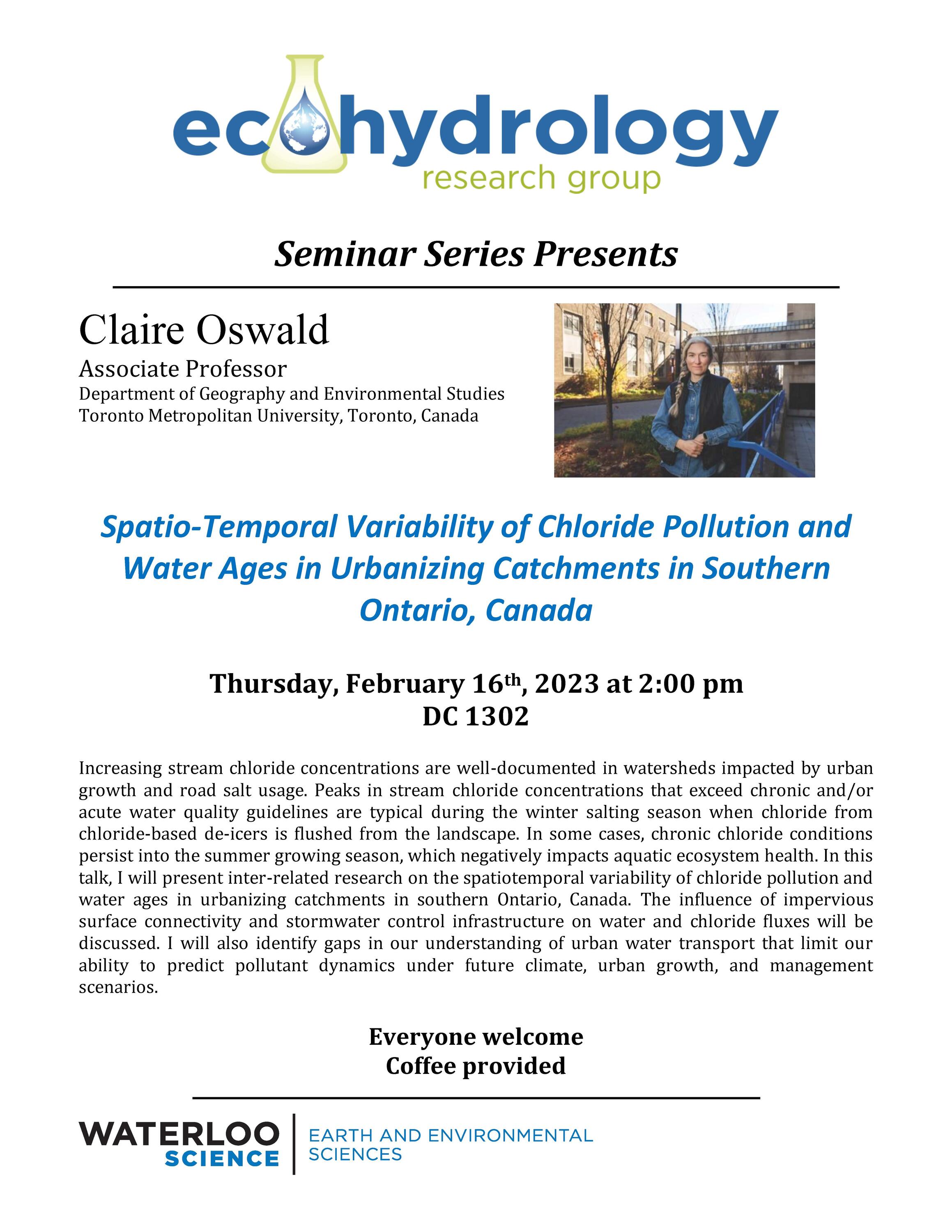
The Ecohydrology Research Group will be hosting a seminar series. Our first seminar will be from Dr. Claire Oswald titled ‘Spatio-Temporal Variability of Chloride Pollution and Water Ages in Urbanizing Catchments in Southern Ontario, Canada’, on Thursday February 16th from 2 - 3pm in DC 1302. No registration required and attendance is free!
Dr. Oswald is an Associate Professor in the Department of Geography and Environmental Studies at Toronto Metropolitan University (TMU) and the Academic Director of the interdisciplinary Urban Water Research Centre. Dr. Oswald’s research in the fields of catchment hydrology, pollutant transport, and spatial analysis of landscapes takes a combined field + laboratory + modelling approach. Dr. Oswald has worked in undisturbed and disturbed landscapes across Canada and since joining TMU in 2014, she has devoted much of her time to tracing water fluxes in meso-scale urbanizing watersheds and their influence on freshwater salinization. This ‘urban water’ focused research is in addition to her other studies related to mercury fate and transport, the quantification of hydrologic and material connectivity, and wastewater surveillance of infectious disease. Much of her research contributes to mitigating freshwater pollution and promoting more sustainable city environments.
‘Spatio-Temporal Variability of Chloride Pollution and Water Ages in Urbanizing Catchments in Southern Ontario, Canada’
Abstract:
Increasing stream chloride concentrations are well-documented in watersheds impacted by urban growth and road salt usage. Peaks in stream chloride concentrations that exceed chronic and/or acute water quality guidelines are typical during the winter salting season when chloride from chloride-based de-icers is flushed from the landscape. In some cases, chronic chloride conditions persist into the summer growing season, which negatively impacts aquatic ecosystem health. In this talk, I will present inter-related research on the spatiotemporal variability of chloride pollution and water ages in urbanizing catchments in southern Ontario, Canada. The influence of impervious surface connectivity and stormwater control infrastructure on water and chloride fluxes will be discussed. I will also identify gaps in our understanding of urban water transport that limit our ability to predict pollutant dynamics under future climate, urban growth, and management scenarios.